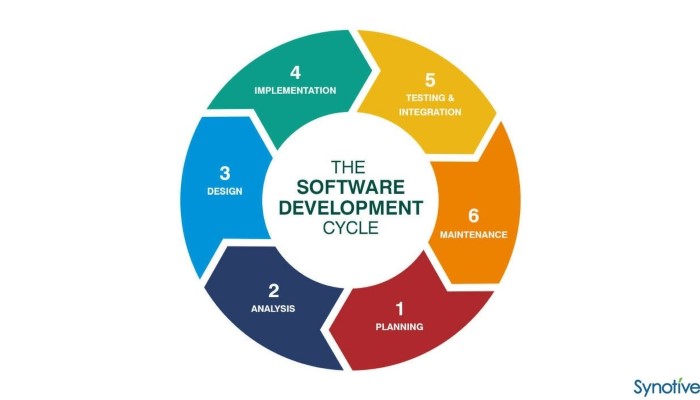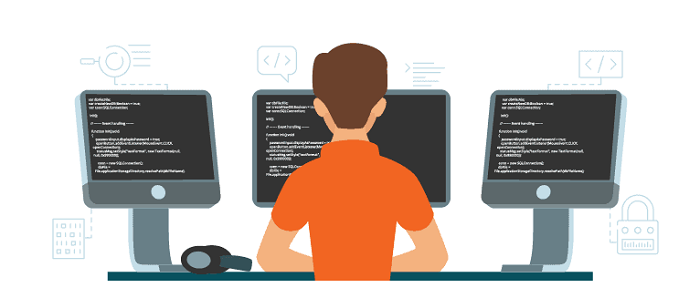The software development industry is one of the fastest-growing fields today, offering a plethora of opportunities for those who wish to enter the tech world. Becoming a software developer requires a blend of education, skills, experience, and the right mindset. This comprehensive guide will walk you through everything you need to know to embark on your journey to becoming a software developer.
Understanding Software Development

What is Software Development?
Software development involves the process of designing, creating, testing, and maintaining software applications. These applications can range from mobile apps and web services to operating systems and games.
The Importance of Software Development
Software development is crucial in the modern world as it:
- Drives technological innovation.
- Enhances business operations.
- Improves user experiences.
- Solves complex problems efficiently.
Types of Software Developers
Front-end Developers
- Role: Focus on the visual and interactive aspects of web applications.
- Skills Needed: HTML, CSS, JavaScript, frameworks like React or Angular.
Back-end Developers
- Role: Work on server-side logic, databases, and application functionality.
- Skills Needed: Programming languages like Java, Python, Ruby, and databases like SQL, MongoDB.
Full-stack Developers
- Role: Handle both front-end and back-end development.
- Skills Needed: Comprehensive knowledge of both front-end and back-end technologies.
Mobile Developers
- Role: Develop applications for mobile devices.
- Skills Needed: Swift (iOS), Kotlin (Android), Flutter, React Native.
DevOps Engineers
- Role: Focus on the deployment and operation of software systems.
- Skills Needed: Continuous integration/continuous deployment (CI/CD), Docker, Kubernetes.
Essential Skills for Software Developers
Technical Skills
Programming Languages
- Popular Languages: Python, Java, JavaScript, C++, C#, Ruby.
- How to Learn: Online courses, coding bootcamps, university degrees.
Version Control
- Importance: Track changes in code, collaborate with others.
- Tools: Git, GitHub, GitLab.
Debugging and Testing
- Purpose: Ensure code works as intended, catch and fix bugs.
- Methods: Unit testing, integration testing, automated testing.
Soft Skills
Problem-Solving
- Why It Matters: Ability to tackle and solve complex issues is crucial.
- How to Improve: Practice coding challenges, work on diverse projects.
Communication
- Importance: Essential for collaboration with team members and stakeholders.
- Ways to Develop: Participate in team projects, engage in code reviews.
Time Management
- Significance: Handle multiple tasks efficiently, meet deadlines.
- Tips: Use productivity tools, prioritize tasks, set realistic goals.
Educational Pathways
Formal Education
Computer Science Degrees
- Benefits: Comprehensive understanding of software development, theoretical foundations.
- Duration: Typically 4 years for a bachelor’s degree.
Bootcamps
- Advantages: Intensive, focused learning, shorter duration (3-6 months).
- Ideal For: Those looking to quickly transition into a software development career.
Self-Learning
Online Courses
- Platforms: Coursera, Udemy, edX.
- Flexibility: Learn at your own pace, variety of topics.
Books
- Recommendations: “Clean Code” by Robert C. Martin, “The Pragmatic Programmer” by Andrew Hunt and David Thomas.
- Why Read: Gain in-depth knowledge, understand best practices.
Gaining Practical Experience

Personal Projects
- Why They Matter: Showcase your skills, learn by doing.
- Examples: Build a personal website, create a mobile app, contribute to open-source projects.
Internships
- Benefits: Real-world experience, networking opportunities.
- How to Find: Apply through company websites, job boards, university career centers.
Freelancing
- Advantages: Flexibility, diverse projects.
- Platforms: Upwork, Freelancer, Toptal.
Hackathons
- Purpose: Collaborate with others, solve challenges in a short time.
- Benefits: Networking, improving coding skills, potential job offers.
Building a Portfolio
What to Include
- Projects: Showcase a variety of projects demonstrating different skills.
- Code Samples: Highlight clean, efficient code.
- Documentation: Provide clear, comprehensive documentation for your projects.
How to Present
- Online Presence: Create a personal website, use GitHub to host your code.
- Clarity: Make sure your portfolio is easy to navigate and visually appealing.
Job Search Strategies
Networking
- Importance: Many jobs are filled through referrals.
- How to Network: Attend industry events, join tech meetups, participate in online forums.
Resume and Cover Letter
- Resume Tips: Keep it concise, highlight relevant experience and skills.
- Cover Letter Tips: Tailor it to the job, show your passion for software development.
Job Portals
- Popular Sites: LinkedIn, Indeed, Glassdoor.
- Strategy: Regularly check for new postings, set up job alerts.
Interview Preparation
Types of Interviews
Technical Interviews
- Focus: Assess your coding skills and problem-solving abilities.
- Preparation: Practice coding problems on platforms like LeetCode, HackerRank.
Behavioral Interviews
- Focus: Evaluate your soft skills and cultural fit.
- Preparation: Use the STAR method (Situation, Task, Action, Result) to structure your answers.
Mock Interviews
- Purpose: Simulate the interview experience, get feedback.
- How to Do: Use platforms like Pramp, Interviewing.io, or ask a friend.
Continuing Education and Professional Development
Staying Current
- Why It’s Important: The tech industry evolves rapidly, staying updated is crucial.
- How to Stay Updated: Follow tech blogs, subscribe to industry newsletters, attend conferences.
Advanced Certifications
- Benefits: Validate your skills, make you more competitive.
- Examples: AWS Certified Developer, Microsoft Certified: Azure Developer.
Professional Associations
- Purpose: Networking, professional development opportunities.
- Examples: Association for Computing Machinery (ACM), IEEE Computer Society.
Becoming a software developer is a rewarding journey that requires dedication, continuous learning, and practical experience. By following the steps outlined in this guide, you’ll be well-equipped to navigate the path to a successful career in software development. Remember, the key to success lies in staying curious, persistent, and passionate about technology.


